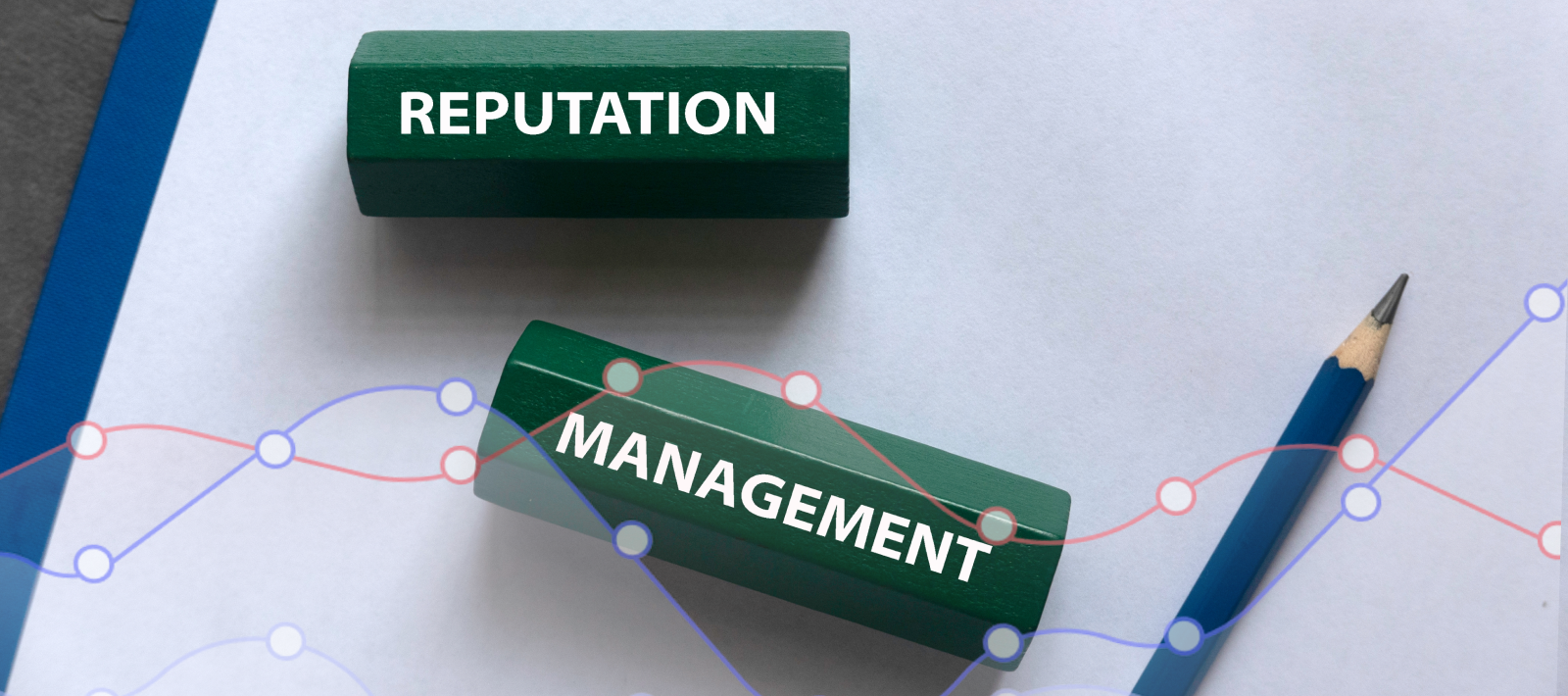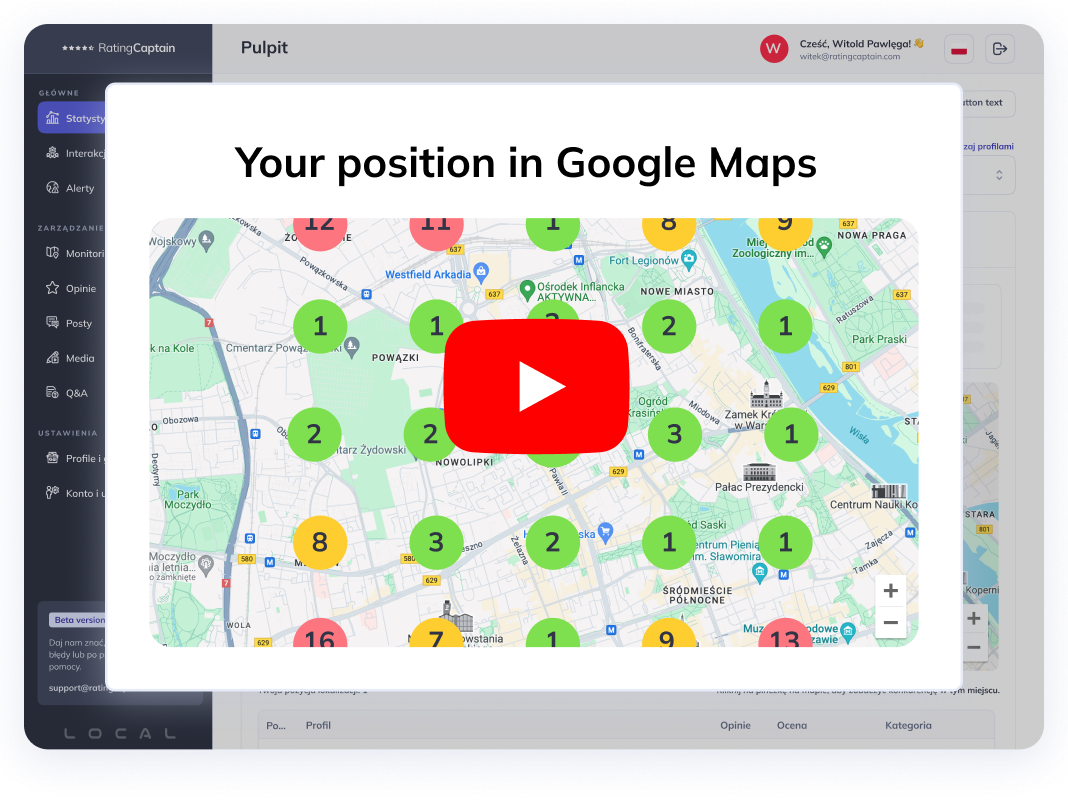

A Guide to Brand Reputation Management: Why Reputation is Important for Your Business?

Table of contents
Introduction:
Every brand has a reputation, whether it's positive or negative. The reputation of your brand is what people are saying about your brand, and it can impact your business significantly. Having a positive brand reputation means having a positive perception of your brand, which can increase brand loyalty, drive sales, and attract new customers. On the other hand, a bad reputation can damage your brand's image, lose customers, and impact your bottom line. In this guide to brand reputation management, we'll explore the importance of reputation management for your business, ways to measure your brand reputation, and effective strategies, tools, and tips to manage, build, and protect a great brand reputation.
Importance of Brand Reputation Management - Why Online Reputation is so important?
Brand reputation management encompasses all the efforts you make to manage your company's reputation and improve your reputation online. Reputation is important because it's an intangible asset that gives your brand value, builds trust and credibility with your audience. A positive brand reputation indicates that your brand is trustworthy, delivers quality, and stands behind products and services. Reputation is an integral part of brand identity and is how your brand is perceived by your customers and the public.
Reputation can also impact your brand's bottom line. A good reputation builds brand loyalty, attracts new customers and stakeholders, and generates positive buzz around your brand. Nearly 72% of consumers turn to social media posts to learn about brands, making a positive reputation on the internet crucial for your brand. . Damaging comments about your brand can spread online quickly, affecting the perception of your brand in the long run. That is also why lack of brand reputation management can really hurt your company.
Online Brand Reputation Management - How to Manage your brand reputation?
Online brand reputation management is all about monitoring, building, and protecting your brand's image. With social media and search engine rankings playing a significant role in shaping brand perception, a bad reputation can have a significant impact on your business. Here are some strategies and tools to manage your brand's online reputation effectively:
Monitor Your Brand on Social Media: Social listening is a crucial partwhen you manage brand reputation. By reviewing social media posts and comments about your brand, you can spot both positive and negative sentiment around your brand. Use social media platforms like Hootsuite, Mention, and Google Alerts to help monitor what people are saying about your brand.
Manage Your Brand Reputation with Online Reputation Management Services: Reputation management services like Reputation.com, Net Reputation, and Reputation X help businesses monitor and manage their image. Using monitoring tools, they actively track mentions and reviews that impact your brand reputation and remove negative content with actionable insights on how to improve your brand reputation.
Implement Strong SEO Strategy: SEO rankings impact brand reputation, and a strong SEO strategy is also essential. Start by optimizing your website for relevant keywords, quality content, and meta descriptions. This will help improve your website ranking, which affects your brand reputation positively.
Build Your Brand with Positive Online Presence: A strong online presence can build, support, and promote your brand reputation. Use social media platforms, blogs, and forums to engage with your audience and create brand awareness. Creating strong online content and a brand personality can help improve your brand reputation.
Protect Your Brand: Protecting your brand involves being proactive about potential risks, that could be damaging your brand reputation. You can protect your company by creating a plan and knowing how to respond to negative comments about your brand. Being transparent, responsive, and addressing customer concerns quickly can also build trust.
Effective Brand Reputation Management Strategies
Brand reputation is important and building and maintaining a strong brand reputation requires a comprehensive strategy that aligns with your values and goals. Here are some strategies to implement effective brand management for your image:
Define Your Brand Reputation: Understanding how your brand is perceived by the public is crucial. Start by measuring your brand reputation using metrics like brand awareness, online sentiment, and website traffic. Once you understand your brand reputation, create a brand perception statement to align with your values.
Create a Brand Image: Creating a brand image and great reputation sets your brand apart from competitors. A brand image embodies the visual elements, brand personality, and messaging for your brand. Creating a cohesive image for a brand online across all channels makes your brand recognizable, trustworthy, and attractive to customers.
Build Brand Loyalty: Building brand loyalty involves creating a customer-centric strategy that promotes brand advocacy. POsitive brand reputation builds loyalty. That's why you should encourage customer feedback, address concerns, and provide exceptional customer service.
Use Brand Reputation Management Tools like Brandwatch, Reputation Ranger, and Yext can help monitor and manage your brand reputation online. These tools provide actionable insights and analytics to help improve your brand reputation.
Train Brand Ambassadors: Your employees and stakeholders can be powerful brand ambassadors. Training them to understand your values and messaging and encouraging them to promote your brand can help increase brand perception positively.
Reputation management tools to build good brand reputation:
Reputation management tools are an essential part of any business today. With the advent of social media, reputation management has become increasingly important, as a bad review or negative press can spread like wildfire and cause significant damage to a company's bottom line. They help to monitor online chatter about a brand, flag any negative comments, and strategize a response. These tools also help businesses understand how their brand is perceived by the public, allowing them to adjust their marketing and messaging accordingly. By using tools for reputation management, businesses can proactively manage their reputation, mitigate negative exposure, and protect their brand's integrity.
Ways to build brand reputation using different channels:
As a part of brand reputation management you need to leverage a variety of channels. Social media platforms like Twitter and Facebook offer a powerful way to engage with customers and respond to any negative feedback or complaints. Online review platforms such as Yelp, TripAdvisor, and Google Reviews should also be monitored regularly to ensure any negative comments are addressed promptly. Creating and maintaining blog content can help portray your business in a positive light and build credibility.
Utilizing search engine optimization (SEO) techniques can also optimize positive content and suppress negative mentions. Email marketing campaigns can reach out to customers directly and encourage positive reviews and feedback, while influencer marketing can create positive brand associations through endorsement from relevant individuals. Ultimately, the more channels you leverage for online reputation management, the better equipped your business will be to manage and maintain its online presence.
Building good brand reputation online with social listening
Building a positive brand reputation online and managing your reputation has never been more important, and social listening is a key tool to achieve it. By monitoring social media and online conversations, businesses can gain insight into what their customers are saying about them, their products, and their industry as a whole. This information can then be used to inform marketing strategies, improve customer service, and even create new product offerings.
Social listening also allows businesses to quickly address any negative feedback or complaints, showing their customers that they are truly invested in their satisfaction. By actively engaging with their audience and taking their feedback into consideration, businesses can build an online community of loyal, satisfied customers who trust in your brand and will be eager to support your brand by sharing their positive experiences with others. Social listening is not just a way to stay on top of what's being said about your brand; it's a powerful tool to help your brand thrive while building a brand solid reputation.
How to measure brand reputation?
Great brand reputation management takes care of constant measuring and analyzing brand needs. Measuring brand reputation can be a complex task, but with a few key steps, it can be done effectively. First, it's important to survey your target audience to understand their perception of your brand. Look for feedback through social media channels and review sites. Analyze the tone and brand sentiment of online conversations about your brand and product/service.
Track key performance metrics like website traffic, conversion rates, and customer retention rates to see how your brand is performing in the industry. Finally, compare and analyze data against your competitors to gauge where you stand in the market. By taking these steps, you can develop a comprehensive understanding of your company's reputation. Additionally, it can be helpful to conduct surveys or interviews with current and potential customers to gain more in-depth insights into their perceptions of your brand. This can uncover valuable information about what customers value most about your brand and identify areas where improvements can be made.
It's also important to monitor any potential threats to your brand reputation, such as negative reviews or customer complaints. Address these issues promptly and transparently to show that your brand values customer satisfaction and is committed to resolving any issues.
Overall, measuring brand reputation requires a combination of quantitative and qualitative data analysis, as well as ongoing monitoring and response to feedback and potential threats. By prioritizing your brand reputation and taking proactive steps to manage it, you can maintain a positive image and build long-term customer loyalty.
How to protect your brand reputation in an image crisis?
In an image crisis, protecting your brand reputation is crucial. The first step is to respond quickly and honestly to any negative publicity. Provide accurate information and communicate openly with all stakeholders, including customers, employees, and investors. Monitor social media and other online platforms to stay ahead of any negative comments or reviews. Be transparent about any corrective actions that are being taken to correct the situation.
Avoid appearing like you're hiding anything or not taking responsibility, as it can severely damage the image of your company. Keep an eye on competitors in similar situations and learn from their responses. Be proactive in taking action to address any issues, and consider seeking outside help if necessary. Above all, remain committed to your brand values and mission, and don't allow a temporary setback to derail your long-term plans.
Why Is Brand Reputation So Important for B2B Companies in particular?
Brand reputation is crucial for B2B companies for various reasons. Firstly, it builds trust with potential clients, allowing them to be confident in the company's abilities, products or services before committing to a deal. Secondly, a positive reputation can be leveraged to attract new clients through word of mouth recommendations or positive reviews, reducing the need for costly advertising. Furthermore, a strong reputation can also serve as a competitive advantage amongst industry peers, enabling a company to stand out and attract top talent. Finally, a poor reputation can have long-lasting effects, leading to lost sales and ultimately hindering a company's growth potential. Therefore, it is critical for B2B companies to prioritize the reputation of their brand in order to build trust, increase market share and ultimately achieve sustainable success.
Online reputation management - Conclusion:
Managing your brand's reputation well is important for any business. Building and maintaining it requires a comprehensive plan and effective brand reputation management strategies. Consistent monitoring, being proactive about potential risks, and engaging with your audience are essential parts of this process. Remember that reputation risks are inevitable, and how you respond to them is crucial. Having excellent brand reputation management efforts in place can mitigate any reputation risks and ensure a strong, positive overall brand reputation.
Please rate this article
Local SEO-Werkzeug für Agenturen
Automatisieren Sie Ihr lokales SEO und verfolgen Sie die Sichtbarkeit in Google Maps

